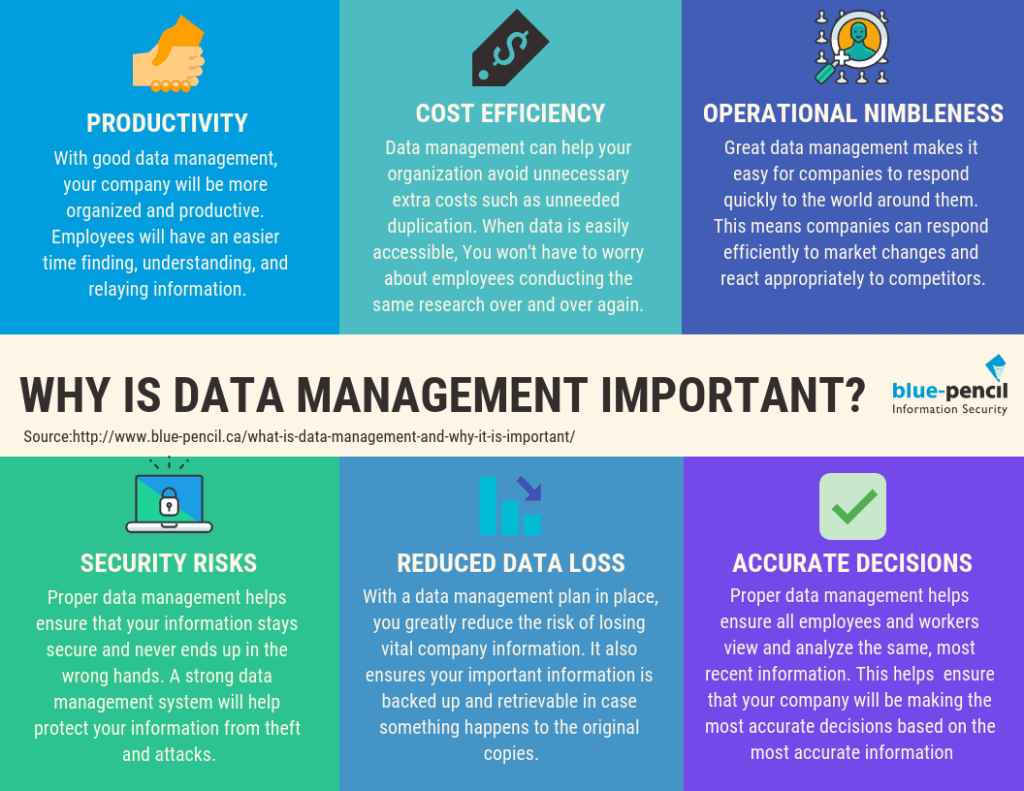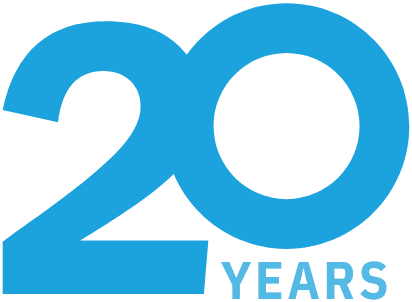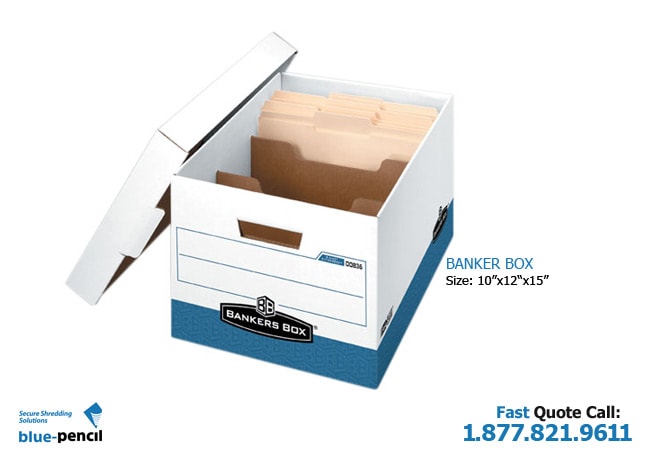Whether dealing with paper or electronic records, it’s important to know which records to keep around, which to store for future reference, and which can be destroyed and at what point that process should be undertaken.
Effective records management business sytems have never been more important. Working with a records management service is a great way to keep your important company records safe, secure, and organized.
Read the Ultimate Guide to Records Management Services and learn the following:
- What is a Record?
- 5 reasons why you need good records management systems
- Records Management Challenges for 2022
- Implementation of a Records management program
- Cost Effective Records Management Solutions
- Finding a Trusted Records Management Partner
What is a record?
A basic definition of a record would be recorded information that you have generated or received in the conduct of business, and which must be maintained to meet the administrative, fiscal, legal, or historical needs of your business.
Records come in all formats these days – paper documents, digital information in a database, e-mails, and photographs, for example. It is useful to think about records in the framework of a life cycle: creation, active use, inactive maintenance, and disposition. This graphic from Swarthmore College in Pennsylvania – using school records as an example – is very helpful:
Disposition, by the way, is another way of saying “the way in which something is placed or arranged, especially in relation to other things.”
Not all documents are records. Examples of non essential records include transitory communications (e-mails about what time to schedule a meeting), reference materials (news clippings), duplicates of records from other departments, and rough drafts.
Digital challenges to keep in mind
It’s easy to wrap our heads around filing paper records, but we live in an increasingly digital world, and electronic records pose several unique challenges. It’s important, therefore, to be aware of these issues as you create and manage digital records.
One major issue is that as software and hardware change over time, files become obsolete and difficult to access. Make sure to keep important records in common formats that are well-supported and will continue to be updated.
Additionally, make sure your organization’s records are secure and backed up, and stored where you can access them. If you use removable storage, make sure to move the files regularly as storage devices can become obsolete.
For more, be sure to read our article on the 9 Major Benefits of a Records Management Service.
5 reasons why you need good record management
There are several reasons why your business – no matter the size – needs a meaningful and effective records management program. Read on to discover five specific reasons why.
Records Management is the control and supervision of your company’s digital and paper records. It includes both the storage of records and secure shredding. When working with a professional records management service, you will find the following benefits for you, your employees, and your business as a whole.
1. Keep confidential information safe and secure
Records management is an ideal way to store your company’s confidential information. Confidential information can come in many forms, including to client information, employee information, company tax records, signatures, and much more.
Storing your information at your workplace where dozens of employees have access can greatly increase your risk of a purposeful or accidental information leak. A reputable records management company will ensure that your records are stored in a secure location, with only trained and trusted employees accessing your information.
2. Stay organized
Even the smallest of businesses can accumulate a lot of information in short periods of time. The Greater Toronto Area is home to some of the biggest companies in North America, making it a challenge to keep track of it all.
Fortunately, records management services can do it for you. They not only store your documents but help to organize them and track them for you. Record management improves efficiency and productivity, but it also saves time and space.
3. Company-wide consistency
A records management service will help your business get set up with consistent data entry and file retrieval at any level.
When you store your documents in secure facilities, for Blue-Pencil will label and code each box or record with a predetermined indexing scheme. Your business determines the level of detail per box.
This increases productivity. When employees don’t have to worry about retrieving, storing, organizing, and labeling hundreds of documents in their filing system, they have more time to spend on more pressing day-to-day responsibilities and streamlines their business systems.
4. Know what to get rid of and when
A retention schedule lets you know when certain records can safely be destroyed with a secure shredding services. This further optimizes space usage and ensure cost-effective storage and management.
A Shred-All policy is recommended, but you don’t want to get caught having destroyed important information prematurely.
On the other hand, you don’t want to be stuck storing outdated records that are no longer necessary or useful, or paying to store them offsite.
5. Helps to save money
A records management service can help you and your company save money.
On a practical level, you can make the most out of your office space when you don’t have to worry about storing your documents in a filing cabinet or storage space on-site. This means you can work with a smaller physical space or maximize the space you do have!
Record Management Challenges for 2022
Paper-only records are a thing of the past, and the ability to properly store, protect and retrieve digital documents in a hybrid work environment is essential. Discover three challenges that those in charge of records management may face over the next several years.
1. How will you deal with the sheer volume of records?
With an incredible 2.5 quintillion bytes of data being created every day, 90% of the world’s data has been created in the last two years alone. A staggering figure, it is expected that the volume of data is to double every two years. Every business contributes to that pile, and records management is a necessary task that should not be lost in the shuffle.

A few reasons why record management is so important.
2. How will you keep track of it all?
In the not-so-distant past, records were primarily physical documents that were largely sourced from on-site management systems. Paper records are still plentiful, but the definition of what is considered a “record” has changed quite a bit over the years.
In general, you should assume that everything is a record – knowing what to keep, what to shred (and when!) and what to store off-site for long term retention is key, and there are services out there to help with that process.
3. How will you remain compliant?
Privacy laws are becoming increasingly complex, and that poses a big challenge to your record managers. Companies are no longer only affected by local laws and regulations anymore; they need to consider international laws and regulations too. This is requiring companies to adopt much complex record keeping and information sharing processes.
Implementation of a Records Management Program
Implementing an effective record management system can be challenging, but entirely worth it once everything is up and running. Having a poor records management system can cause trouble, both internally and externally for your business.
Let’s take a look at some key aspects of implementing a record management system for your business.
Hire record management professionals
With the information footprint of even the smallest of businesses expanding daily, it’s necessary for you to look to trained professionals to help you manage your company’s records.
A trusted provider can complement your team, relieving some pressure and allowing employees to go about the day-to-day tasks of running the business with a meaningful and organized record management system to rely on.
The sooner you begin to rely on a record management provider, the better off your business will be.
Create a classification scheme
AIIM (Association for Information and Image Management) suggests that a classification scheme helps businesses share information in a way that makes it easier for staff to remain on the same page.
Arranging your records in different groups or classes will bolster your organization’s ability to quickly search and retrieve information.
Develop a metadata model
Metadata is information about a subject that can help describe and classify the created record. On a computer, for example, each file has information such as date created and file type that aids in searching the information.
Similarly, a metadata model for various types of records can help your employees understand when it should be disposed of and who is authorized to view the information.
AAIM suggests that a metadata model that can be leveraged across the company, can help ensure consistency, and provide a model for new departments wishing to better manage record deposits.
Ensure records management representation
Having a record management representative at planning meetings can help ensure that your business is ahead of the game as opposed to reacting to mismanagement. That kind of forward thinking is what can set your company apart from the competition.
Part of that planning involves educating employees, making everyone aware of the record management challenges that are being addressed, and how record management can make employee’s work more efficient and effective.
Seek proper records management input from regulators and government agencies
Often when companies are tagged with a penalty for non-compliance or regulatory compliance audits, this is their first encounter with the privacy arm of government. Inviting regulators to be part of the process of planning and initiating business operations to support an information management system can help build relationships and ensure your company meets compliance requirements.
The Office of the Privacy Commissioner of Canada is available here to help answer questions or to provide input.
Cost Effective Records Management Solutions
Finding cost-effective solutions to record management is high priority for businesses of any size. Discover what a cost effective yet highly effective record management system looks like.
Pay per carton
Long-term, off-site document storage is a widely used service in record management. Most businesses – no matter the size – now realize the benefits of outsourcing records storage. By hiring a reputable company to store your records, you can save time, space and money, and dedicate these resources other more pressing of the business.
With this method, you don’t have to worry about renting out an entire room or storage unit elsewhere. With Blue-Pencil, storage costs are pay per box or carton that you store with us. Documents are efficiently stored and managed off-site in purpose-built facilities; there, your records are expertly handled, and kept secure and easily retrievable.
You can organize and pack, label and index your documents yourself or have our professional archiving team help so you can quickly get back to focusing on the day-to-day aspects of your business.
Uncompromising Security
Regardless of the number of cartons you choose to store, security will always be at a premium; Blue-Pencil’s transportation vehicles and records storage facilities are designed with security and manageability as top priority.
From the time your records leave your hands, they are protected. Boxes are scanned at each touchpoint, so you always know exactly where they are and once they are securely stored in our facility.
They are also climate controlled for best preservation, monitored with 24/7 security systems, electronic access and protected from fire and natural disasters with our state-of-the-art fire suppression technology.
Life-cycle management
Not all records need to be kept indefinitely. A good record management service will help you by effectively controlling your storage space cost by managing your records retention schedule.
By building a retention schedule or simply indicating when records can safely be destroyed with secure shredding services, you can optimize space usage and save on the cost per carton, thereby ensuring cost-effective storage and management.
Finding a Trusted Document Management Partner
Now that you are aware of the importance of information management and a record management service, this guide will wrap up by highlighting a few things you should look for when hiring a company to take care of this for your business.
Secure Records Storage
Long-term, off-site document storage remains the most widely used service in records management, as many businesses now see the benefits of outsourcing records storage. With this in place, you can now take advantage of valuable space, as well as freed up financial and other resources, and dedicate these to other areas of the business.
Records should not be kept in generic storage lockers, but in purpose-built facilities where they are expertly handled, kept secure, and are easily retrievable.
You can organize, pack, label, and index your documents yourself or have our professional archiving team help so you can quickly get back to focusing on the day-to-day workings of your business.
Security at its best
A good record management company will feature transportation vehicles and records storage facilities that are designed with security and manageability as top priorities.
From the time your business data leaves your hands, it should be protected from improper handling, theft, fire, and prying eyes.
Boxes will be scanned at each point along the way so you always know exactly where they are; once they are securely stored at the facility, they will be climate controlled for best preservation, monitored with 24/7 security systems, and protected from fire and natural disasters with our state-of-the-art fire suppression technology.
Full access to stored documents using electronic records management systems
A secure records storage facility should have special racking systems and advanced tracking systems to make retrieval very efficient. All boxes should be coded and scanned into a specified location; additionally, if your business requires more detailed file access, each file within each box can be coded to make retrieval very specific.
Next-day, half-day, and emergency retrieval is a must, and your records should be able to be digitally scanned and sent to you in electronic format.
With Blue-Pencil+, for example, you can search and locate the records you need and send retrieval requests online.
Cost-effective solutions
Bottom line: you want to save money with low-cost document storage solutions. The best solution is to pay per carton while concurrently controlling your storage costs by managing your document life cycle.
An effective record management team can help build retention schedules with you, or simply indicate when records can safely be destroyed with secure shredding services to optimize space usage and ensure cost-effective storage and management.
Remember: All archived documents do require written authorization for permanent destruction when the retention period is up.
In sum, here’s why record management is so important:
Trust Blue-Pencil with Your Record Management Needs!
Blue-Pencil Records Management and Document Storage services deliver secure and convenient solutions for all types of business records and document management needs in the Greater Toronto Area and Ontario.
Our off-site storage solutions will reduce your costs, free up your resources and space, and allow for easy access to what you need to meet the demands of your business in a timely manner.
Our dependable staff partner with you to work on a total records management solutions



